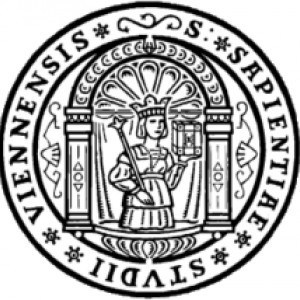Photos of university / #univienna
The Master’s Program in Human Rights at the University of Vienna offers a comprehensive and interdisciplinary education designed to equip students with an in-depth understanding of the complex issues surrounding the protection and promotion of human rights worldwide. This program combines theoretical foundations with practical applications, enabling students to critically analyze human rights challenges across different social, political, and legal contexts. Throughout the program, students engage with core topics such as international law, human rights norms and standards, political theories, social justice, and human rights advocacy. They will explore the historical developments of human rights, examine contemporary issues such as migration, discrimination, conflict, and inequality, and learn about the mechanisms and institutions responsible for safeguarding these rights at both national and international levels. The curriculum emphasizes multidisciplinary approaches, integrating perspectives from law, political science, sociology, and international relations, thus preparing graduates for careers in diplomacy, non-governmental organizations, international agencies, and academia. Students will participate in seminars, workshops, and practical training modules that foster analytical skills, advocacy strategies, and policy formulation. The program also encourages critical reflection on the challenges and limitations faced by human rights initiatives and promotes ethical considerations in advocacy work. With access to the University’s extensive resources, libraries, and networks, students have the opportunity to engage with leading scholars and practitioners in the field of human rights. The Master’s in Human Rights at the University of Vienna aims to develop informed, competent, and committed individuals capable of making meaningful contributions to the advancement of human rights globally. Graduates will be well-prepared to navigate complex international environments, influence policy, and promote social justice and equality in their professional and personal lives.
The Master's Degree Programme in Human Rights at the University of Vienna offers a comprehensive and interdisciplinary curriculum designed to equip students with the theoretical knowledge and practical skills necessary to understand, analyze, and advocate for human rights worldwide. The program covers a broad spectrum of topics, including international human rights law, social justice, refugee and minority rights, ethical considerations, and the role of institutions and civil society in promoting and protecting human rights. Students engage with critical issues such as gender equality, freedom of expression, and the impact of globalization on human rights standards. Through a combination of lectures, seminars, workshops, and case studies, learners are encouraged to develop analytical thinking, research competencies, and practical skills for effective human rights advocacy and policy development. The program also emphasizes experiential learning, offering opportunities for internships and collaborations with human rights organizations, NGOs, and governmental bodies. The curriculum is designed to foster a nuanced understanding of the complexities involved in defending human rights in diverse cultural and political contexts. Graduates of the program will be well-prepared for careers in international organizations, human rights NGOs, governmental agencies, and academia. They will also possess the ability to critically evaluate human rights issues, develop effective strategies for advocacy, and contribute to the development of policies that promote equality, justice, and human dignity globally. The program's interdisciplinary approach ensures that students gain insights from law, political science, history, and sociology, making them versatile professionals capable of addressing the multifaceted challenges of human rights in the contemporary world.
The Master’s degree program in Human Rights at the University of Vienna is designed to provide students with comprehensive knowledge and critical understanding of the fundamental principles and legal frameworks related to human rights, as well as the social, political, and economic contexts in which these rights are embedded. The program requires students to complete a structured curriculum that combines core courses, electives, and practical experience, ensuring a well-rounded education in the field.
Admission to the program typically necessitates a relevant undergraduate degree, such as Law, Political Science, Sociology, or related disciplines, demonstrating academic competence and a motivation to pursue advanced studies in human rights issues. Applicants must submit a completed application form, academic transcripts, a Curriculum Vitae, a motivation letter outlining their interest in the program, and possibly references or letters of recommendation. Proficiency in English is required, with proof provided via standardized tests or recognized qualifications, given that key course instruction and coursework are conducted in English.
The core curriculum includes mandatory courses on international human rights law, the history and development of human rights, contemporary human rights challenges, and research methods in the social sciences. Electives allow students to specialize in areas such as gender rights, refugee law, humanitarian law, or rights-based development, aligning with their career goals and academic interests. In addition to coursework, students are required to complete a research project or thesis that demonstrates their ability to conduct independent academic research on a relevant topic.
Additional program requirements include participation in seminars, workshops, and internships that provide practical insights into human rights advocacy and policy-making. The program encourages interdisciplinary approaches, integrating perspectives from law, political science, sociology, and international relations. Students must also demonstrate proficiency in a second foreign language, apart from English, which is often a requirement for full professional competence in the field.
Assessment methods vary but generally encompass written examinations, essays, presentations, and the thesis. Students are expected to adhere to academic integrity standards and engage actively in discussions and group work. Successful completion of all coursework, examinations, and the thesis leads to the award of the Master’s degree in Human Rights from the University of Vienna, equipping graduates with the skills necessary for careers in human rights institutions, NGOs, governmental agencies, or further academic research.
The Master’s program in Human Rights at the University of Vienna offers diverse financing options to support students throughout their studies. Tuition fees are generally structured to be affordable for both domestic and international students. For EU/EEA students, the tuition fee is typically waived or set at a minimal cost per semester, aligning with the university's aim to promote accessible higher education. Non-EU/EEA students are usually required to pay higher fees, which are publicly listed on the university's official fee schedule. In addition to tuition, students should consider additional costs such as health insurance, accommodation, study materials, and personal expenses. The University of Vienna provides various scholarships and financial aid opportunities aimed at supporting students academically and financially. Scholarships may be awarded based on merit, need, or specific criteria such as nationality or field of study. International students are encouraged to explore the university’s scholarship portal for available funding opportunities, including Erasmus+ mobility grants and external funding sources. Some programs also offer teaching or research assistantships that provide stipends and/or fee waivers in exchange for work commitments. The university participates in the European Union’s student mobility programs, which can supplement personal financing through grants for study abroad periods or internships. Students are advised to consult the university’s financial aid office and scholarship services early in their studies to ensure timely application. Additionally, students can explore external funding from governments, foundations, or international organizations dedicated to human rights and social justice. Part-time work opportunities on or near campus are also available for students wishing to supplement their income while studying. Overall, the University of Vienna strives to make the Master’s program in Human Rights financially accessible through a combination of tuition structure, scholarships, grants, and flexible employment options.
The Master's degree program in Human Rights at the University of Vienna offers students an in-depth exploration of the fundamental principles and contemporary issues related to human rights worldwide. The program is designed to equip students with the theoretical knowledge, analytical skills, and practical experience necessary to understand, evaluate, and address human rights challenges in various contexts. It covers a broad range of topics, including international human rights law, human rights activism, discrimination, refugees and asylum seekers, women's rights, children's rights, and the role of international organizations in promoting and protecting human rights.
Typically structured as a two-year program, it includes core courses, electives, and a research thesis. The curriculum combines lectures, seminars, case studies, and discussions to foster critical thinking and apply academic insights to real-world problems. Students may have opportunities for internships, fieldwork, or collaborative projects with NGOs, governmental agencies, or international organizations, which enhance their practical skills and professional network.
The program emphasizes a multidisciplinary approach, integrating legal, political, social, and ethical perspectives on human rights. It aims to prepare graduates for careers in human rights advocacy, policy development, international law, diplomatic service, or academia. The faculty comprises renowned scholars and practitioners in the field, providing students with expert guidance and mentorship.
Admission requirements typically include a relevant undergraduate degree, proficiency in English, and motivation to work in the human rights sector. The University of Vienna's location in the heart of Europe offers strategic advantages for engaging with international organizations and NGOs, as well as access to relevant conferences, seminars, and networking events.
Overall, the Human Rights Master's program at the University of Vienna seeks to foster a new generation of informed and committed human rights advocates who can contribute to social justice, legal reform, and the promotion of dignity and equality worldwide.






